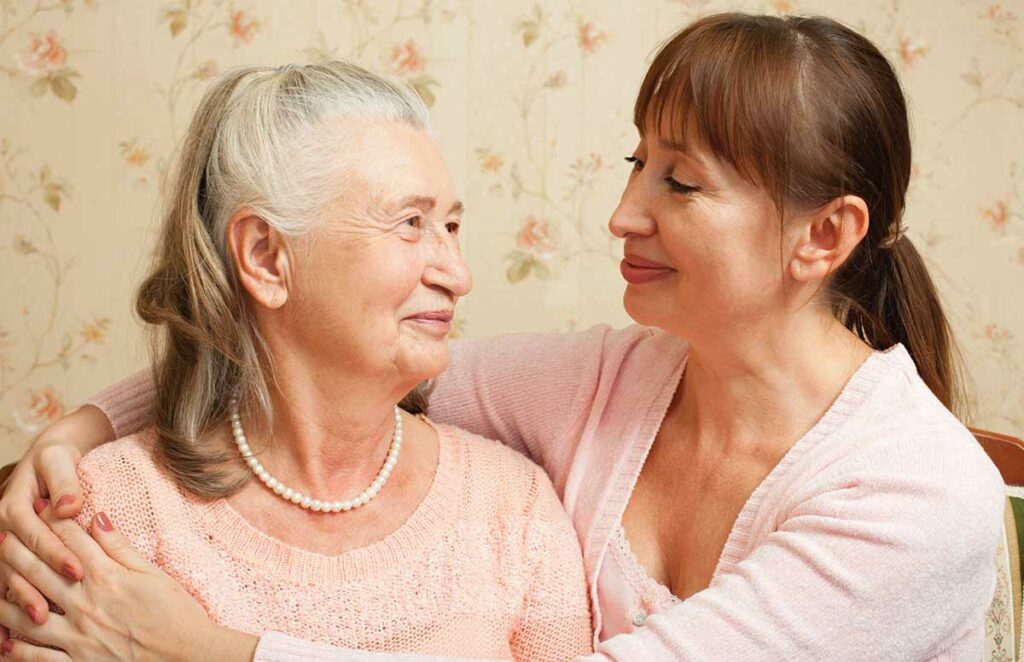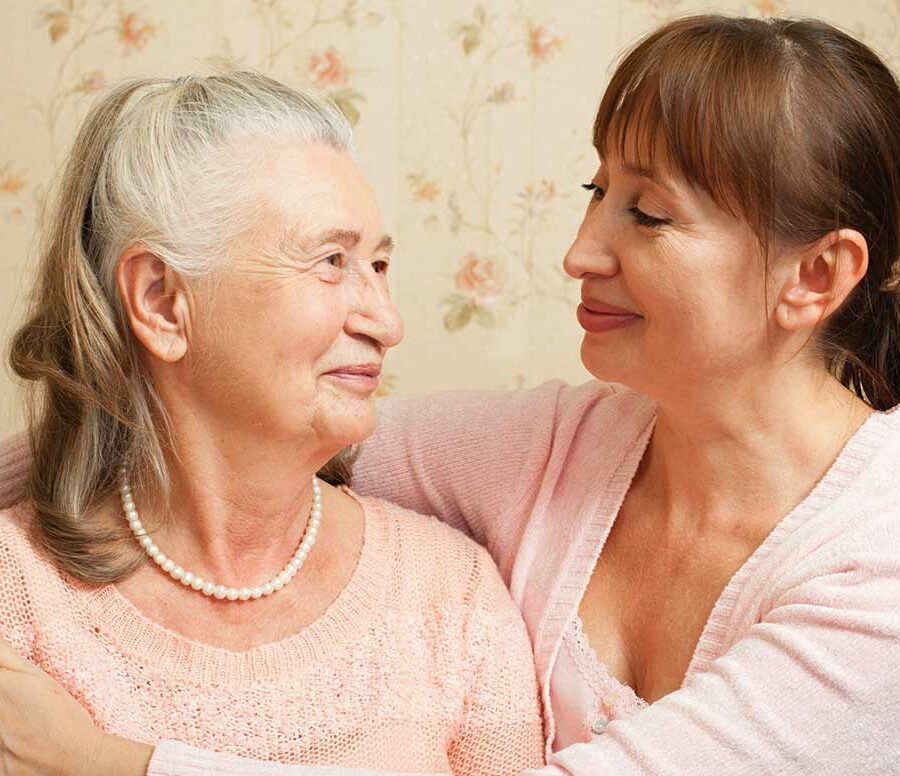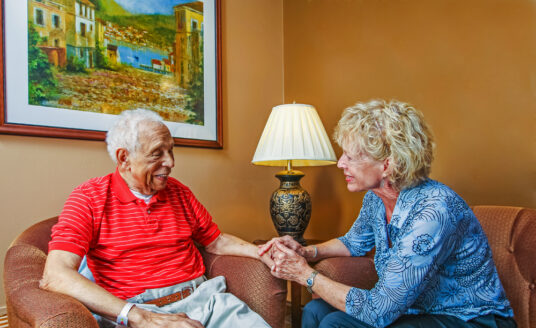(Editor’s note: This is the 11th in the Next Avenue “When Should You…” series on aging milestones for parents or loved ones. With our partners at the Benjamin Rose Institute on Aging, we address common caregiving concerns.)
If you are caring for someone with Alzheimer’s disease or another form of dementia, you will notice that as the condition worsens, so does your loved one’s ability to initiate or participate in conversations; understand and process information; and communicate wishes, wants and needs.
Change the Way You Communicate
Someone has reached the “moderate” stage of dementia when they reflect red flag behavior changes, such as:
- Forgetfulness
- Confusion
- Mood swings
- Frustration
- Anger
These signs are also you that you need to change the way you’re communicating and interacting with your loved one.

Credit: Thinkstock
“The old ways aren’t going to work anymore,” explains licensed social worker Crystal Wallace, the assistant director of the Adult Day Program at Benjamin Rose Institute on Aging, “so it’s up to the caregiver to change the way they communicate — their behavior, their attitude, their approaches — to accommodate a loved one’s changed communication needs.”
“Don’t think of this as manipulating them,” she adds. “Think of it as providing a positive and supportive environment where they are comfortable and can and will have good experiences.”
Have Positive Body Language
One of the most important change caregivers need to make is in their body language.
“Non-verbal communication — an open, accepting smile, a gentle, reassuring touch, not grimacing when they say something inappropriate — is very important at this stage,” says Wallace. “It doesn’t just improve communication. Since it may be the only ‘communication’ they understand, it reassures a loved one, affirms who they are and makes them feel loved.”
Listening to music or participating in activities like drawing, knitting, and looking through a photo album are also powerful communication resources. “These kinds of activities can help calm and reassure them because they are attached to memories of good times,” says Wallace.
Non-verbal communication works in almost any setting, says Wallace, but it works best when you are both in a quieter, less-stimulating environment.
“Closing a door, moving chairs to a quieter corner of a room, or turning off the TV will make it easier for both of you to ‘be present’ and for communication and experiences to be positive,” she adds.
Enable Positive Experiences
To help create those positive experiences, Wallace shares the following tips:
- Always approach them from the front, and where possible, make sure to make eye contact.
- Enter your loved one’s world because they don’t have the ability to come into yours.
- Be aware of their non-verbal cues, such as facial expressions, body language, anxiety levels.
- Don’t rush things. Slow your speech, give lots of time for responses, use gestures and be patient.
- Limit options to encourage decision-making. For example: “Do you want to go out to eat tonight at Restaurant A or Restaurant B?” rather than “Where do you want to eat tonight?” Or “Do you want to wear your green dress or your blue dress?” rather than “What do you want to wear?”
- Phrase questions to elicit simple “yes” or “no” responses if decisions need to be made,
- Stick to topics from the past, such as family, pets, travel or a former job when talking
Keep in mind that when a loved one has dementia, it’s usually not the only medical condition impacting their ability to communicate. “There’s a whole host of medical conditions that contribute to communication problems,” says Wallace, “but the three worst are hearing and vision loss and arthritis.”
Make a point of learning how your loved one’s specific medical conditions may impact their ability to communicate.
Related Articles
4 Myths About Early Onset Alzheimer’s & Dementia
The Difference Between Dementia & Depression
Safety Tips for Those Living with Alzheimer’s Disease
This article is reprinted with permission. © 2014 Benjamin Rose Institute in Aging. All Rights Reserved.
Learn More About Bethesda’s Skilled Nursing Communities
| With 133 years of experience, Bethesda has become a leader in senior care, offering independent living, assisted living, memory care, and skilled nursing. To see if assisted living is right for your family, tour either of our communities: Bethesda Hawthorne Place or Assisted Living at Charless Village. After meeting with our residents and highly trained staff, you will instantly feel at home. |
Want to find out more?
If you’d like to stay up to date with Bethesda Health Group, sign up here to receive our blog and newsletters!
"*" indicates required fields
Related Articles
Want to find out more?
If you’d like to stay up to date with Bethesda Health Group, sign up here to receive our blog and newsletters!
"*" indicates required fields



